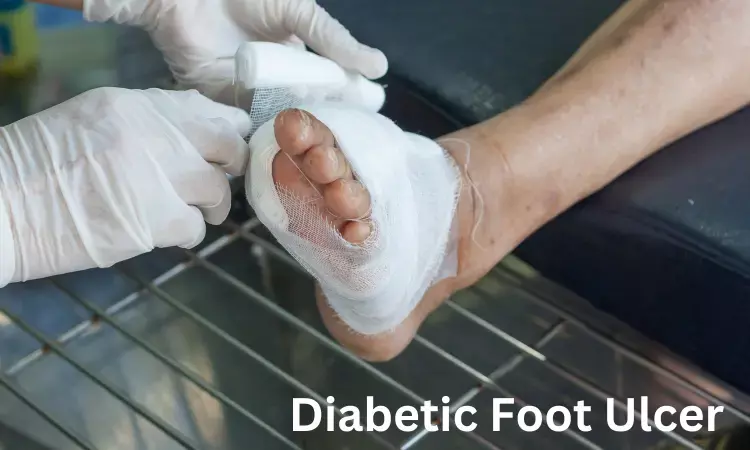- Home
- Medical news & Guidelines
- Anesthesiology
- Cardiology and CTVS
- Critical Care
- Dentistry
- Dermatology
- Diabetes and Endocrinology
- ENT
- Gastroenterology
- Medicine
- Nephrology
- Neurology
- Obstretics-Gynaecology
- Oncology
- Ophthalmology
- Orthopaedics
- Pediatrics-Neonatology
- Psychiatry
- Pulmonology
- Radiology
- Surgery
- Urology
- Laboratory Medicine
- Diet
- Nursing
- Paramedical
- Physiotherapy
- Health news
- Fact Check
- Bone Health Fact Check
- Brain Health Fact Check
- Cancer Related Fact Check
- Child Care Fact Check
- Dental and oral health fact check
- Diabetes and metabolic health fact check
- Diet and Nutrition Fact Check
- Eye and ENT Care Fact Check
- Fitness fact check
- Gut health fact check
- Heart health fact check
- Kidney health fact check
- Medical education fact check
- Men's health fact check
- Respiratory fact check
- Skin and hair care fact check
- Vaccine and Immunization fact check
- Women's health fact check
- AYUSH
- State News
- Andaman and Nicobar Islands
- Andhra Pradesh
- Arunachal Pradesh
- Assam
- Bihar
- Chandigarh
- Chattisgarh
- Dadra and Nagar Haveli
- Daman and Diu
- Delhi
- Goa
- Gujarat
- Haryana
- Himachal Pradesh
- Jammu & Kashmir
- Jharkhand
- Karnataka
- Kerala
- Ladakh
- Lakshadweep
- Madhya Pradesh
- Maharashtra
- Manipur
- Meghalaya
- Mizoram
- Nagaland
- Odisha
- Puducherry
- Punjab
- Rajasthan
- Sikkim
- Tamil Nadu
- Telangana
- Tripura
- Uttar Pradesh
- Uttrakhand
- West Bengal
- Medical Education
- Industry
Concomitant use of insulin and metformin in Diabetes Patients may enhance healing of diabetic foot ulcer, discovers new research

People with chronic diabetic foot ulcers could soon have a new way to treat their wounds for faster healing and fewer hospital stays. Researchers from Michigan State University and South Shore Hospital have uncovered that the combination of two common diabetes drugs-injectable insulin and orally-administered metformin-increases the amount of metformin at the wound site. As metformin can accelerate wound healing, this could be welcome news for the 18.6 million people worldwide (1.6 million in the U.S.) who develop a diabetic foot ulcer, or DFU, in their lifetimes.
“We collected human exudates from diabetic foot ulcers and analyzed their composition,” said Morteza Mahmoudi, an associate professor in the Department of Radiology and Precision Health Program in the MSU College of Human Medicine. “One of the things that we noticed in the composition of the exudates-which has not been observed anywhere else-was the presence of metformin.
“Until now, pharmacological studies had not found an interaction between insulin and metformin,” he added. “Our study shows that there could be at least an indirect role of consuming both insulin and metformin in a way that metformin can end up in a wound area where it enhances the body’s capacity to heal.”
Mahmoudi and co-researcher Lisa Gould, a plastic surgeon and wound care clinician at South Shore Hospital and a clinical associate professor of medicine at Brown University, recently published a paper in ACS Pharmacology and Translational Science that details the previously unheard of connection between insulin and metformin in DFU exudates.
The team’s work was funded by a grant from the National Institute of Diabetes and Digestive and Kidney Diseases.
“Our findings can affect the way that clinicians approach healing chronic wounds,” Mahmoudi said. “For example, if a patient gets a wound, the synergistic role of insulin and metformin could be helpful.
“Additionally, wound dressing developers need to consider the interactions of anything they put on top of wounds with exudates,” he continued. “Exudates can interact with the wound dressings and affect their safety and therapeutic efficacy. Additional research will be evaluating this.”
Reference:
Lisa Gould et al, Analysis of Biogenic Amines and Small Molecule Metabolites in Human Diabetic Wound Ulcer Exudate, ACS Pharmacology & Translational Science (2024). DOI: 10.1021/acsptsci.4c00418.
Dr Kamal Kant Kohli-MBBS, DTCD- a chest specialist with more than 30 years of practice and a flair for writing clinical articles, Dr Kamal Kant Kohli joined Medical Dialogues as a Chief Editor of Medical News. Besides writing articles, as an editor, he proofreads and verifies all the medical content published on Medical Dialogues including those coming from journals, studies,medical conferences,guidelines etc. Email: drkohli@medicaldialogues.in. Contact no. 011-43720751


